- Details
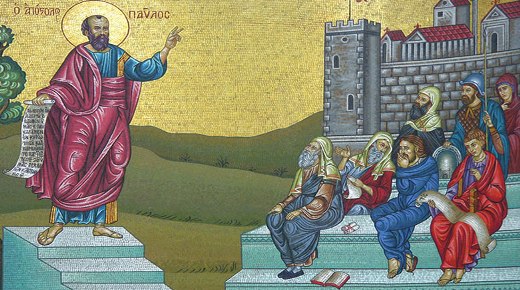
Antioch of Pisidia, which is located on the western plateau of the Taurus Mountains, had the honor of being the first place in all of Asia Minor to hear the preaching of St. Paul (noted by St. Luke in Acts 13:16-41). With this, the Church of Antioch was founded, and from there the Gospel of Christ spread to the wider region. While we can feel grateful to the Great Apostle for this saving work, the Jewish leaders of the Antiochian Synagogue at that time were not. They were greatly alarmed when they saw the Christian population of the city and surrounding villages grow. These zealots appealed to the authorities, who then harassed and expelled Sts. Paul and Barnabas from the Province. Their troubles did not end there, for the Saints were also persecuted in Iconium and Lystra. In fact, it was in Lystra that St. Paul was stoned to the point where his enemies left him for dead (see Acts 14:19). He miraculously survived, but the persecution and sorrows never left him. In his Second Epistle to the Corinthians, he lays out the suffering he has endured for the Gospel: Illness, hunger, thirst, cold from lack of clothes and shelter, exhaustion from his travels with the constant threat of robbery, shipwreck (on his way to Rome), being beaten with sticks and stones, and 4 years of imprisonment. There is also the “thorn in the flesh, a messenger of Satan” that the Saint struggled with constantly (see 2 Corinthians 11:23-33; 12:7).
- Details
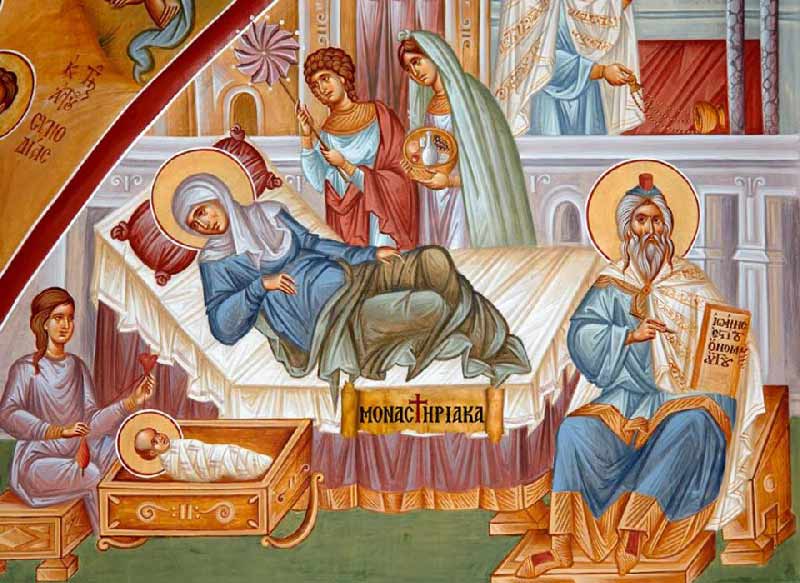
St. John, the Forerunner and Baptist of the Lord, is greatly honored in the Orthodox Church. The Lord Himself said, "Assuredly, I say to you, among those born of women there has not risen one greater than John the Baptist" (Matthew 11:11). The birth of the Forerunner, as the Lord also said, was foretold by the Prophets (see Matthew 11:10). St. Luke gives a detailed account in his Gospel of the miraculous circumstances surrounding St. John’s birth (Luke 1: 5-25, 57-80). The Archangel Gabriel, six months before the Annunciation, appeared to Zacharias, a priest in the Temple of Jerusalem. While he was censing, the Archangel appeared and said to him: “Your prayer is heard; and your wife Elizabeth will bear you a son, and you shall call his name John” (Luke 1:13). He regularly prayed to the Lord for a child, and God gave him a son, who is the greatest of all the Prophets. What was later written by St. Paul the Apostle is fulfilled: "God is able to do exceedingly abundantly above all that we ask or think" (Ephesians 3:20).
- Details
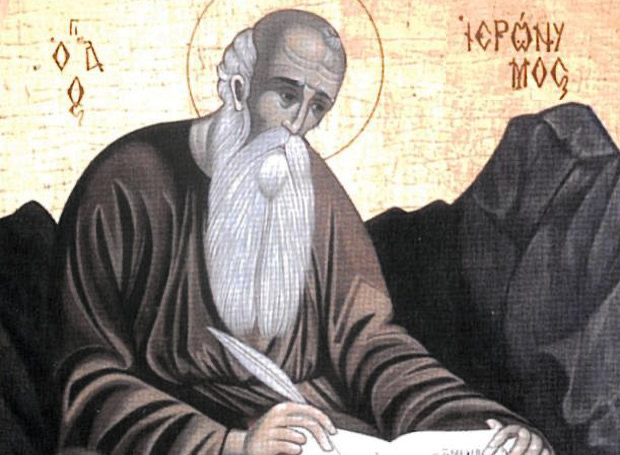
On June 15th the Church remembers St. Jerome, a commemoration highlighting the bond between East and West that existed before the Great Schism (1054). He was born in the Roman province of Dalmatia (which includes today’s city of Grahovo Polje, Slovenia) in the year 347. His parents were wealthy Christians, who sent their son to Rome for an education under the best teachers. He studied Latin and Greek Literature, as well as Philosophy and Rhetoric. After that, the Saint studied Theology in Trier (the Celtic city of Trevorum, which is on the border between France and Germany), Aquileia (the ancient Roman city on the gulf of the Adriatic Sea) and in Antioch of Syria. In Constantinople, he studied under St. Gregory the Theologian (329-390) and in Alexandria under Didymus the Blind (c. 313-398). From this valuable experience came a thorough education and fluency in five languages, which prompted Pope Damasus (366-384) of Rome to invite St. Jerome to become his personal secretary and advisor in 382. Despite such a high position, St. Jerome felt called to the Holy Land. After a long time in the Nitrian Desert (in northwestern Egypt, between Alexandria and Cairo), engaged in spiritual exercises in the midst of great holy ascetics, he made Bethlehem his permanent home in 386. While there he founded two monasteries, one for men (where he was the Abbot), and one for women. He was the spiritual father for both communities, and in addition to their monastic obligations, they engaged in studying and writing.
- Details
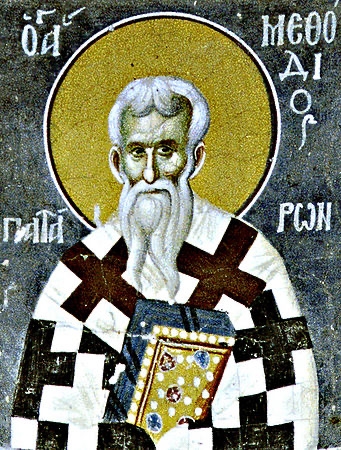
On June 20th, the Church honors the memory of St. Methodios, Bishop of Patara in Lycia, also known as the birthplace of St. Nicholas of Myra. St. Methodios rose to prominence before St. Nicholas, during the last great persecution of Christians by the Roman emperors. He was given rare spiritual and intellectual gifts by God, possessing great knowledge of philosophy and theology. It is with these gifts that he defended Orthodox doctrine, giving strength to Christians. The foundation for this was set in his childhood, where he faithfully participated in the divine worship of the Church. This living faith, combined with his eloquence, made him one of the most important theological and ecclesial figures in the early Church.
- Details
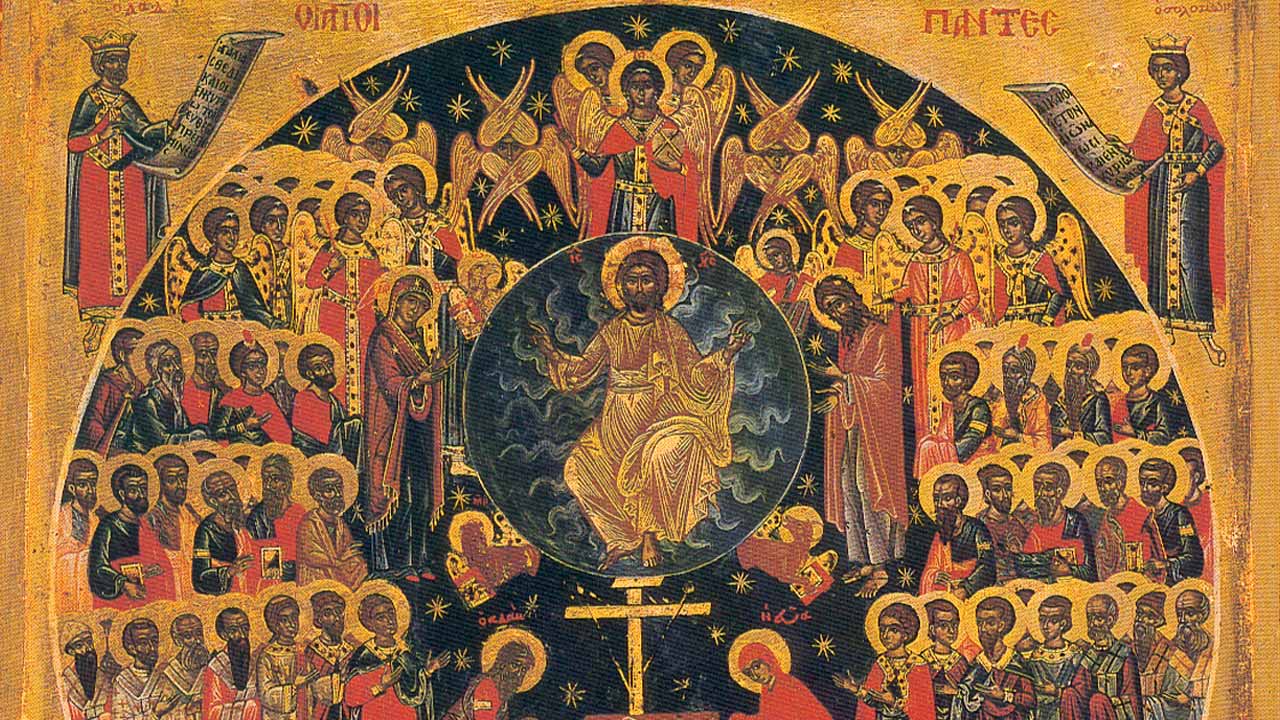
Today, Heaven and earth celebrate the innumerable Saints of the Church of Christ, with glory and praise. This Feast honors all of the Saints who rejoice in God, from all parts of the world and in every age. Many of them we know by name, and we honor them throughout the year. However, there are many more that are unknown, and this is why the Church has set aside the Sunday after Pentecost to honor all Saints, so that they may also be venerated by all. The choice of this particular day is also significant, because it is with the Grace of the Holy Spirit that the Saints were sanctified.





